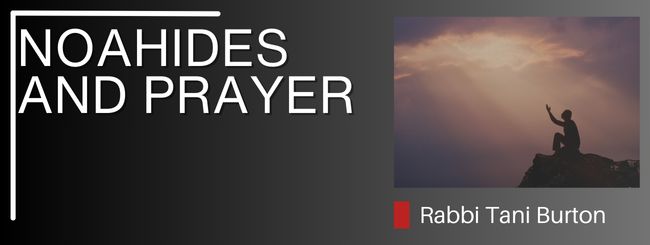בס”ד
- Isaiah 56:7
| I will bring them to My sacred mount And let them rejoice in My house of prayer. Their burnt offerings and sacrifices Shall be welcome on My altar; For My House shall be called A house of prayer for all peoples.” | וַהֲבִיאוֹתִ֞ים אֶל־הַ֣ר קׇדְשִׁ֗י וְשִׂמַּחְתִּים֙ בְּבֵ֣ית תְּפִלָּתִ֔י עוֹלֹתֵיהֶ֧ם וְזִבְחֵיהֶ֛ם לְרָצ֖וֹן עַֽל־מִזְבְּחִ֑י כִּ֣י בֵיתִ֔י בֵּית־תְּפִלָּ֥ה יִקָּרֵ֖א לְכׇל־הָעַמִּֽים׃ |
2. Exodus 23:25
| And you shall serve the L-rd your G-d, and he shall bless thy bread, and thy water; and I will take sickness away from the midst of thee. | וַעֲבַדְתֶּ֗ם אֵ֚ת ה׳ אֱלֹֽקיכֶ֔ם וּבֵרַ֥ךְ אֶֽת־לַחְמְךָ֖ וְאֶת־מֵימֶ֑יךָ וַהֲסִרֹתִ֥י מַחֲלָ֖ה מִקִּרְבֶּֽךָ׃ |
3. Deuteronomy 11:13
| And it shall come to pass, if you hearken diligently to my commandments which I command you this day, to love the L-rd your G-d, and to serve him with all your heart and with all your soul | וְהָיָ֗ה אִם־שָׁמֹ֤עַ תִּשְׁמְעוּ֙ אֶל־מִצְוֺתַ֔י אֲשֶׁ֧ר אָנֹכִ֛י מְצַוֶּ֥ה אֶתְכֶ֖ם הַיּ֑וֹם לְאַהֲבָ֞ה אֶת־י ה׳ אֱלֹֽקיכֶם֙ וּלְעׇבְד֔וֹ בְּכׇל־לְבַבְכֶ֖ם וּבְכׇל־נַפְשְׁכֶֽם׃ |
4. TB Ta’anit 2b
| From where do we derive that (rain must be metioned) in prayer? It is taught in the beraita, “to love the L-rd your G-d and to serve him with all your hearts, etc.” Which is the service of the heart? We must say, “prayer”. | וּמְנָא לַן דְּבִתְפִלָּה — דְּתַנְיָא: ״לְאַהֲבָה אֶת ה׳ אֱלֹקיכֶם וּלְעׇבְדוֹ בְּכׇל לְבַבְכֶם״, אֵיזוֹ הִיא עֲבוֹדָה שֶׁהִיא בַּלֵּב — הֱוֵי אוֹמֵר: זוֹ תְּפִלָּה |
5. Rambam, Laws of Prayer and Birkat Kohanim 1:1
| It is a positive Torah commandment to pray every day, as [Exodus 23:25] states: “You shall serve G-d, your L-rd.” Tradition teaches us that this service is prayer, as [Deuteronomy 11:13] states: “And serve Him with all your heart” and our Sages said: Which is the service of the heart? This is prayer. The number of prayers is not prescribed in the Torah, nor does it prescribe a specific formula for prayer. Also, according to Torah law, there are no fixed times for prayers. | מִצְוַת עֲשֵׂה לְהִתְפַּלֵּל בְּכָל יוֹם שֶׁנֶּאֱמַר (שמות כג כה) ״וַעֲבַדְתֶּם אֵת ה׳ אֱלֹקיכֶם״. מִפִּי הַשְּׁמוּעָה לָמְדוּ שֶׁעֲבוֹדָה זוֹ הִיא תְּפִלָּה שֶׁנֶּאֱמַר (דברים יא יג) ״וּלְעָבְדוֹ בְּכָל לְבַבְכֶם״ אָמְרוּ חֲכָמִים אֵי זוֹ הִיא עֲבוֹדָה שֶׁבַּלֵּב זוֹ תְּפִלָּה. וְאֵין מִנְיַן הַתְּפִלּוֹת מִן הַתּוֹרָה. וְאֵין מִשְׁנֶה הַתְּפִלָּה הַזֹּאת מִן הַתּוֹרָה. וְאֵין לַתְּפִלָּה זְמַן קָבוּעַ מִן הַתּוֹרָה: |
6. Hasagot HaRamban on Sefer HaMitzvot 5
| The whole concept of prayer is not an obligation at all; it is simply the kindness of the Creator, may He be Blessed, that He bestows upon us that He listens to and answers us any time we call upon Him. | ודאי כל ענין התפלה אינו חובה כלל אבל הוא ממדת חסד הבורא יתברך עלינו ששומע ועונה בכל קראנו אליו |
7. Rambam, Laws of Fasts 1:1-2
| It is a positive Torah commandment to cry out and to sound trumpets in the event of any difficulty that arises which affects the community, as [Numbers 10:9] states: “[When you go out to war… against] an enemy who attacks you and you sound the trumpets….” [This commandment is not restricted to such a limited scope; rather] the intent is: Whenever you are distressed by difficulties – e.g., famine, plague, locusts, or the like – cry out [to G-d] because of them and sound the trumpets. | מִצְוַת עֲשֵׂה מִן הַתּוֹרָה לִזְעֹק וּלְהָרִיעַ בַּחֲצוֹצְרוֹת עַל כָּל צָרָה שֶׁתָּבוֹא עַל הַצִּבּוּר. שֶׁנֶּאֱמַר (במדבר י ט) “עַל הַצַּר הַצֹּרֵר אֶתְכֶם וַהֲרֵעֹתֶם בַּחֲצֹצְרוֹת”. כְּלוֹמַר כָּל דָּבָר שֶׁיָּצֵר לָכֶם כְּגוֹן בַּצֹּרֶת וְדֶבֶר וְאַרְבֶּה וְכַיּוֹצֵא בָּהֶן זַעֲקוּ עֲלֵיהֶן וְהָרִיעוּ: |
By Rabbi Tani Burton
© Copyright, all rights reserved. If you enjoyed this article, we encourage you to distribute it further.
Our blogs may contain text/quotes/references/links that include copyright material of Mechon-Mamre.org, Aish.com, Sefaria.org, Chabad.org, and/or AskNoah.org, which we use in accordance with their policies.
